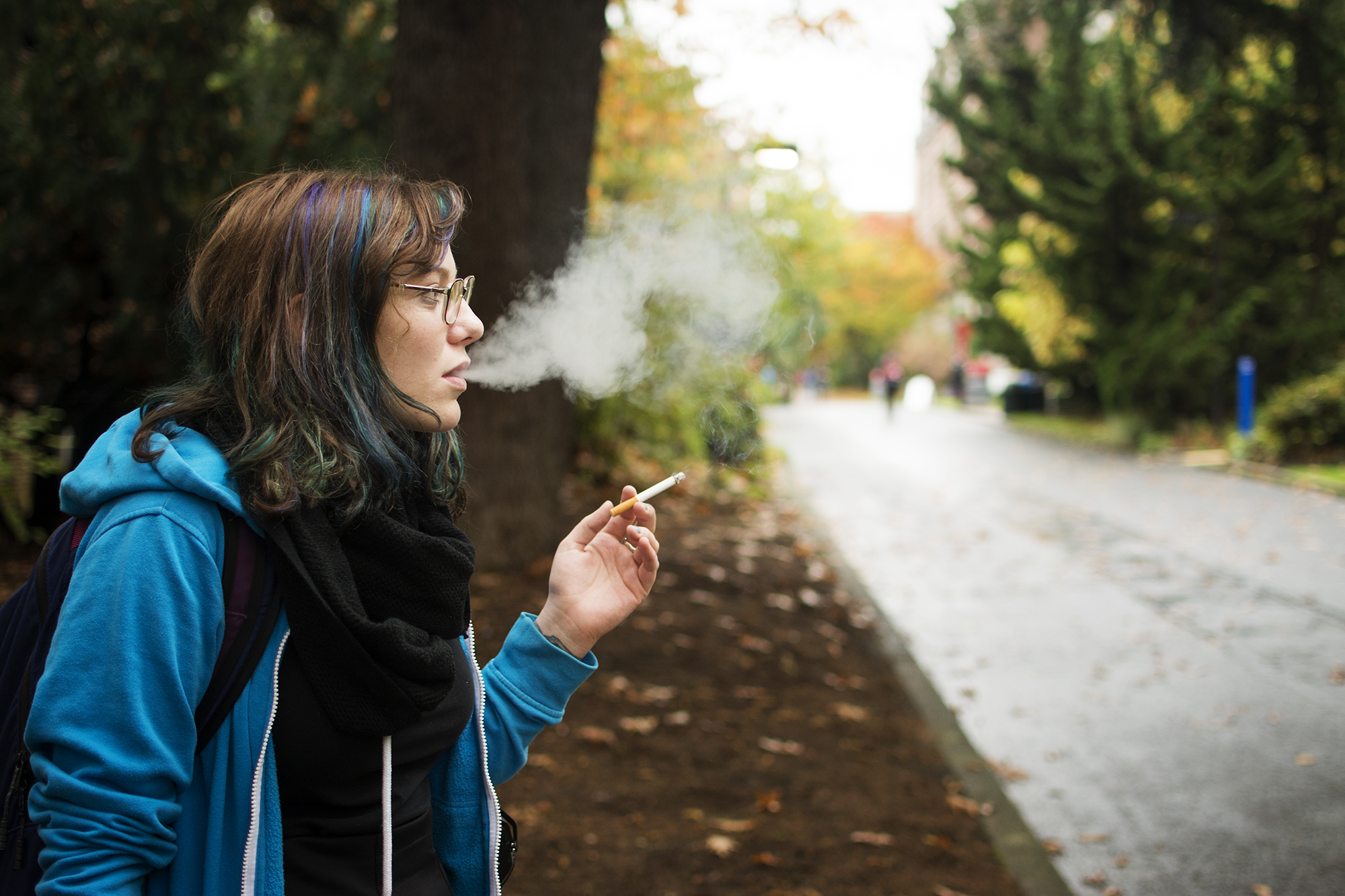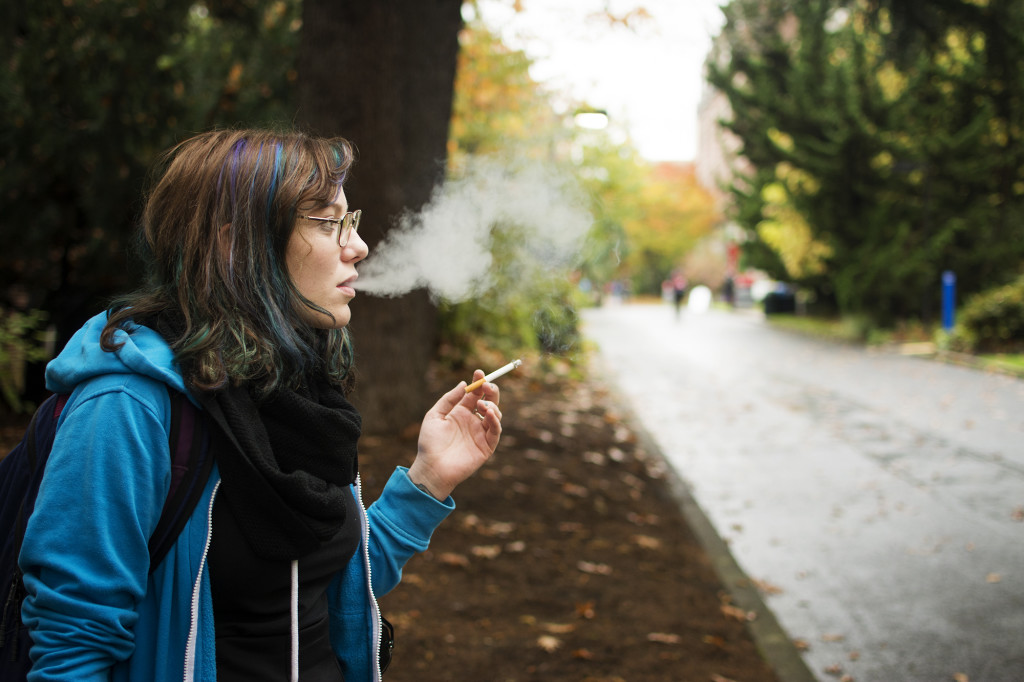
Molly Bartlett takes a cigarette break along the upper mall after having class.
SU Confessions, a Facebook page where Seattle University students can post anonymous comments on just about any topic, has been billowing with heated debates about the long-running tobacco-free campus movement.
“I must confess, I am very disappointed with the University’s complete lack of implementation of last spring’s majority vote by the student body to ban smoking on campus,” read an anonymous post from SU Confessions.
Students have expressed confusion about the school’s current smoking policy and whether smokers have the right to continue smoking on campus or if non-smokers are entitled to ask them to put out their cigarettes.
Seattle U’s tobacco-free movement started in 2011. There has been a large push in the past two years, culminating in an apparent success for those seeking a tobacco-free campus.
All students had the opportunity to voice their opinions on Referendum 901 last spring quarter during the vote for student government officers and policies. A “yes” vote on Referendum 901 meant endorsing Seattle U’s transition to a tobacco-free campus. The majority of the student body voted in favor of a tobacco-free campus and the initiative was approved.
However, there are more steps that need completion before the initiative can be implemented on campus.
“Sometimes students forget that anything that has to do with the whole campus has to go through every population on campus,” said Eric Sype, Seattle Government of Seattle University president.
The three major populations at Seattle U are the students, staff and faculty. All of these groups must approve the tobacco-free initiative, and so far only the students and staff have voted. Therefore, the deciding factor in this debate is whether the faculty, governed by an academic assembly, will vote to pass the initiative.
“I think the reason there is so much interest in the broad inclusion in conversation is really about impact,” said director of Wellness and Health Promotion Ryan Hamachek.
Until the faculty votes on the initiative, individuals who smoke are still entitled to do so on campus, but only in designated smoking areas.
The continued presence of tobacco smoke on campus has been problematic for some non-smokers, especially those with asthma and other health concerns who would like to see a tobacco-free campus enforced and cannot escape the plumes of smoke even when restricted to designated areas.
Many students do not mind smoking on campus, and some have strong feelings about smokers’ rights. Sophomore Jake Ladera, for example, is not in favor of a tobacco-free campus.
“Having a chem lecture, then running over to another chem lab, is a lot of stress, and I only have five minutes to get to class. That’s when I need that cigarette,” Ladera said.
There are many students, however, who are in full support of a tobacco-free campus.
“It’s not healthy for the smoker and the people around them,” said freshman Angelia Rivera. “It’s good if we do [go] tobacco-free.”
Rules that restrict smoking to designated areas are currently in place and will remain so regardless of whether the faculty board passes the initiative.
Concerns from the non-smokers often arise from the abundance of cigarette smoke all over campus. Students are bothered smokers’ failure to use the designated areas. Many also have environmental concerns or health issues such as asthma that are exacerbated by the smoke.
A potential solution to this problem is to ask smokers who are not in designated areas to move to a place where smoking is allowed, if it is bothering someone.
“It depends on how they ask, but if they were genuinely bothered I would say ‘no problem’ and move away from them but not necessarily from everybody else,” Ladera said.
Campuses such as the University of Washington have strict rules about where people can smoke on campus. The Director of Environmental Health and Safety has marked designated smoking areas, and while smoking in or around the majority of buildings at UW is off limits, they are not a
tobacco-free campus.
The website for Americans for Nonsmokers’ Rights cites 1,477 college campuses and universities that are 100 percent smoke-free. Out of that, 975 are 100 percent tobacco free and 291 prohibit the use of e-cigarettes.
The editor may be reached at [email protected]












